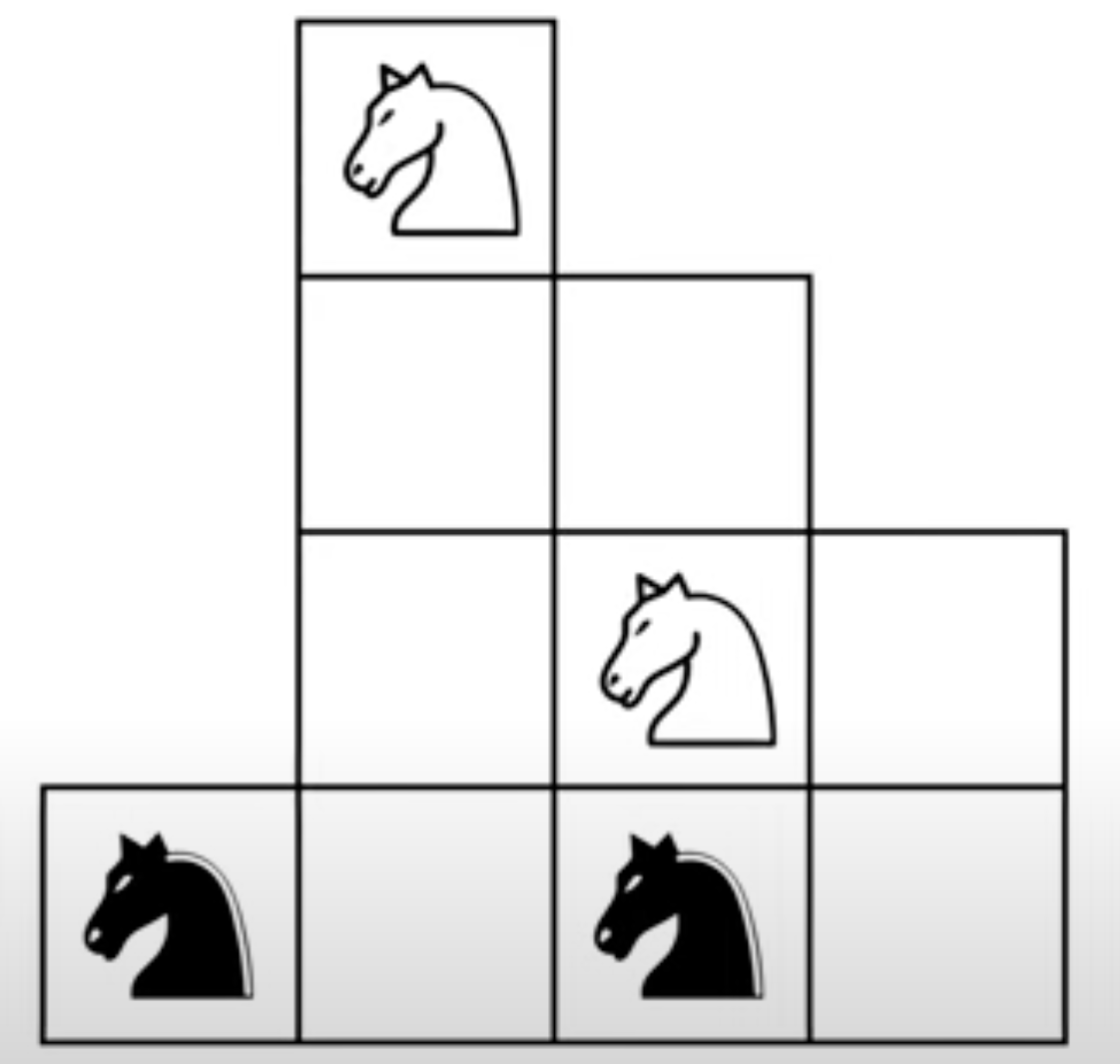Problems
How many independent queens can you place on a \(5\times5\) grid? That is, so none of them attack each other.
How many ways can you place \(8\) rooks independently on a chessboard? That is, so that none of them attack each other.
Why are there no closed knight’s tours on an \(n\times n\) grid when \(n\) is odd? A knight’s tour is closed if you can get to the first square from the last square by a knight’s move.
Show how to place fourteen dominating bishops on a standard \(8\times8\) chessboard. That is, every square either contains a bishop, or is attacked by some bishop.
Place eight independent queens on a standard \(8\times8\) chessboard.
Show how to swap the two pairs of knights on the following strangely-shaped grid. That is, the knights make one move at a time, and you’re trying to get the black nights to where the white knights are, and the white knights to where the black knights are.

Let \(n\) be a positive integer. Prove that it’s impossible to have a closed knight’s tour on a \(4\times n\) grid.
Find an open knight’s tour on a \(2\times2\times2\) cube.
Eleven sages were blindfolded and on everyone’s head a cap of one of \(1000\) colours was put. After that their eyes were untied and everyone could see all the caps except for their own. Then at the same time everyone shows the others one of the two cards – white or black. After that, everyone must simultaneously name the colour of their caps. Will they succeed?
The recertification of the Council of Sages takes place as follows: the king arranges them in a column one by one and puts on a cap of white or black colours for each. All the sages see the colours of all the caps of the sages standing in front, but they do not see the colour of their own and all those standing behind. Once a minute one of the wise men must shout one of the two colours. (each sage shouts out a colour once). After the end of this process the king executes every sage who shouts a colour different from the colour of his cap. On the eve of the recertification all one hundred members of the Council of Sages agreed and figured out how to minimize the number of those executed. How many of them are guaranteed to avoid execution?